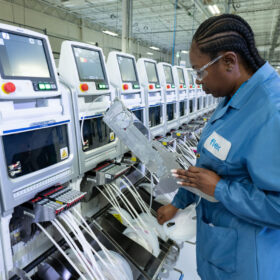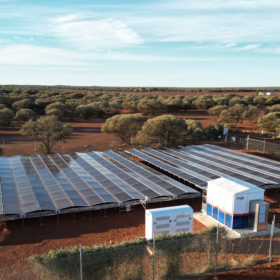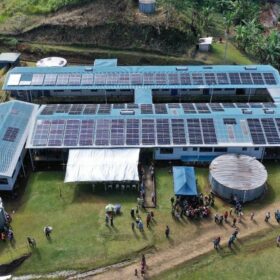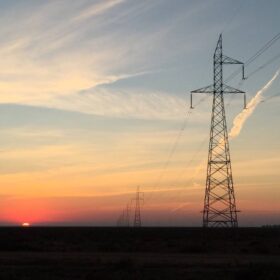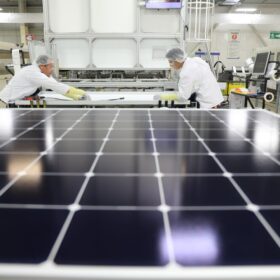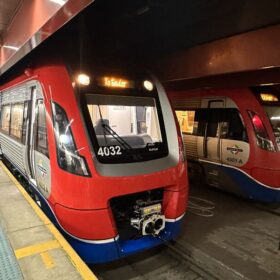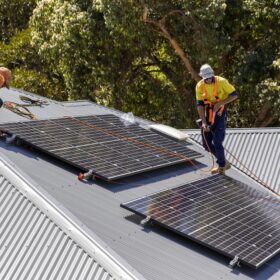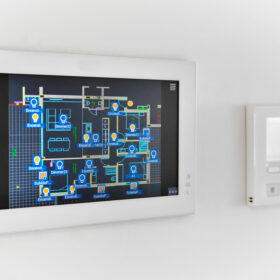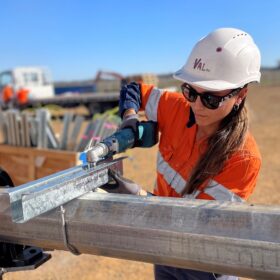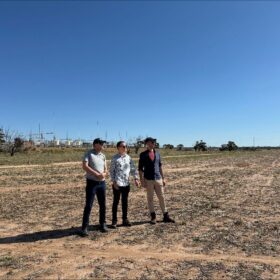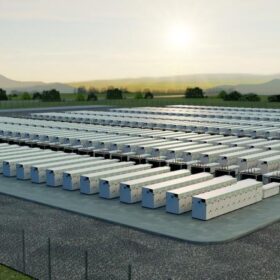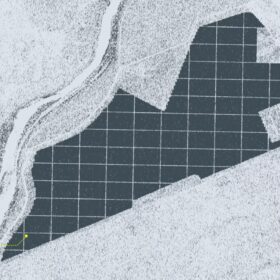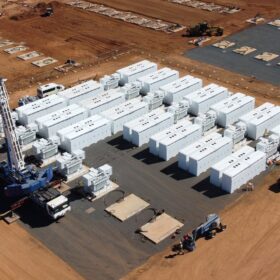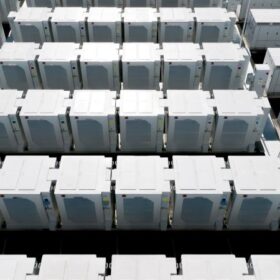Over 155 GW of U.S. solar manufacturing announced in one year
The United States has begun to reshore its energy supply chain one year after the passage of the Inflation Reduction Act.
Horizon turns on solar and storage solution in remote WA
The town of Sandstone in Western Australia’s remote Midwest region is now being powered by renewable energy with state-owned regional utility Horizon Power unveiling a 163 kW solar facility coupled with a 759 kWh battery energy storage system.
US agency says microgrid could provide model for PNG
The United States government, through the U.S. Agency for International Development, has committed $1.86 million (USD 1.2 million) to support the development of a solar-powered microgrid in Papua New Guinea’s Central province.
AEMC proposes rule changes for major transmission projects
The Australian Energy Market Commission has proposed new rules that would require developers planning major transmission projects to consult with communities and affected stakeholders earlier in the projects’ development.
Weekend Read: Deployment trumps manufacturing in EU priorities
A lack of clear policy support, raw material dependency, and higher production costs are inhibiting the localisation of European solar manufacturing, despite strong demand, writes Edurne Zoco, executive director for clean energy technology at S&P Global.
Electric train steers South Australia toward net zero milestone
South Australia’s planned transition to a zero-emissions public transport system has reached a major milestone with the electrification of the passenger rail line between Adelaide’s CBD and Gawler in the north now complete.
Maxeon to build 3 GW cell and module plant in US
Singapore-headquartered solar manufacturer Maxeon Solar Technologies will invest more than $1.5 billion (USD 1 billion) to establish a TOPCon manufacturing facility in the United States, creating up to 1,800 highly skilled jobs.
Switch to all electric tipped to save households $4,320 a year
Australian households that make the shift to all-electric energy-efficient appliances, combined with solar panels, battery storage and electric vehicles, could save $3,500 a year by 2030 and $4,320 by 2050 compared with a fossil-fuelled household that relies on gas appliances and petrol or diesel vehicles.
CSIRO to source 5 MW of flexible demand in smart buildings project
Australia’s national science agency will lead a ‘smart buildings’ pilot project that has the potential to create a new ecosystem of technologies and solutions to support flexible demand for energy, offering a way to ease pressure on the grid during peak demand periods.
Australian EPC calls for female workforce boost to address skills shortage
As the nation looks to foster the perfect conditions for a successful renewable transition, overwhelming attention is being paid to the number of new energy developments and the viability of transmission infrastructure to deliver it to Australian homes. Far less publicised are the practicalities of how the infrastructure will be developed and by whom.
